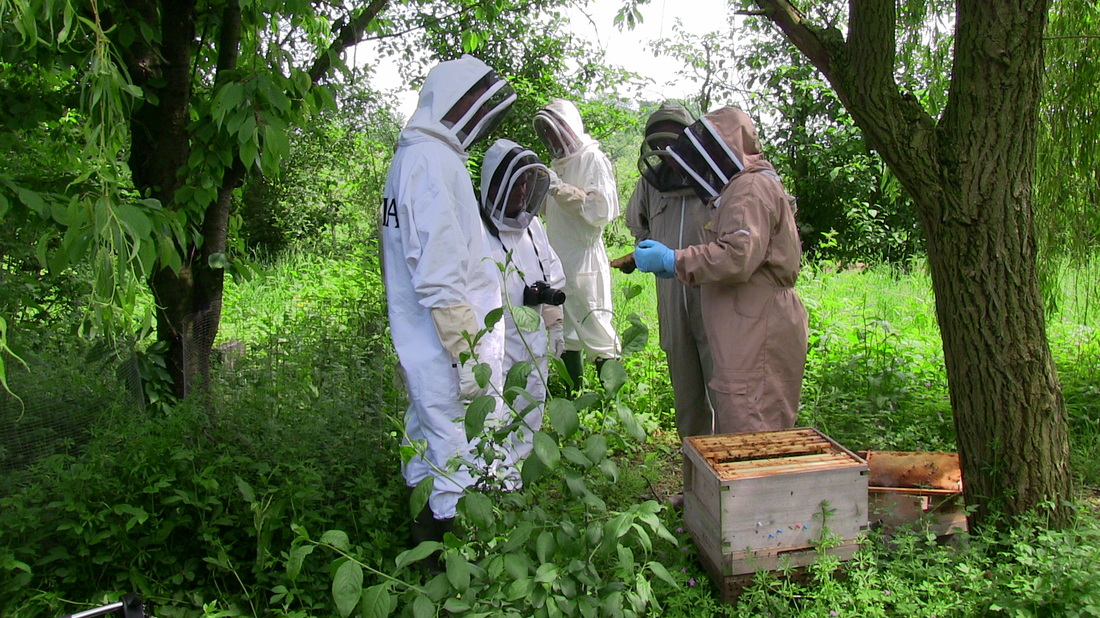Co-production of knowledge with non-humans: plants, animals, materialities - spaces and places
Convenors: Michelle Bastian (Edinburgh), Michael Buser (UWE), Owain Jones (Gloucester), Emma Roe (Southampton)
Sponsored by the History and Philosophy of Geography Research Group and the Participatory Geographies Research Group
Session abstract
This session will explore how the co-production of knowledge within (and between) communities is being expanded beyond narrowly human notions of community to take into account the ‘voices’, needs and agencies of non-humans. We seek to explore how co-production has been done (historical examples), is being done, and can be done (imagined futures), with panoplies of non-humans which range through animals, plants, technologies and materials within space-time in both topological and topographical formations. We feel that expanding the processes of knowledge creation through co-production is a necessary step in efforts to address the toxic nature/culture divide and in developing materialist techno-ecologicalisation of politics and ethics (Haraway, Latour, Bennett, Barad etc.). We need deeper engagements with the ecological (taken in its broadest sense), materialised processes which conjure communities into being, sustain them, set them together, apart, in conflict, and bring them down; and in how they might be reformed into more just configurations. We seek contributions which: report upon work that has sought to co-produce knowledge with non-humans; speculate (plan) conceptually and methodologically on how co-productions with non-humans of differing stripe might be done; stage dialogues between specialists in co-production and those specialising in the more-than-human (broadly conceived).
One of the foremost proponents of participatory research - Peter Reason – has argued that the ethical and political imperatives implicit within the co-production paradigm need to be extended to non-humans. Claiming that we need to re-conceive ourselves as embedded within biotic systems, Reason characterises the notion of the more-than-human as an emergent edge within participatory research. Durose et al have also drawn attention to how long-standing epistemological debates about the nature of knowledge and expertise lie at the heart of debate about the impact of co-producing research.
Engagement with a whole range of work that identifies human exceptionalism as a fundamental impediment to knowledge, has been recognized as key to effectively addressing socio-ecological challenges. The (neglected) interdependencies between the social and the ecological are writ large in the current era of ‘ecocide’, and realigning them from toxic to therapeutic forms is essential. However, transformative dialogues between co-production practitioners and those working on the more-than-human, which promise so much for both approaches, have yet to take place.
Thus we are specifically interested to explore how co-produced research can be inclusive of a wider set of actors than just the human. And in how to meet the challenges and opportunities offered by exploring methods and philosophies of co-production and how it might be transformed by the recognition of experiences, desires and knowledges of more-than-human agencies. And, in turn, how more-than-human approaches might learn from the attentiveness to community, voice, participation and methodology which have been developed within the field of co-production. The session draws inspiration from a variety of recent projects and writings which have sought to bring non-humans of one kind or another (plants, animals, technologies, and wider materialised processes) into knowledge co-production. These have variously engaged with ideas of empathy, agency, witnessing, experimental partnering, data sonification, narrative theory, conversation and voice to explore possibilities of co-working with non-humans.
Contributions (using tradition or non-tradition formats) might:
- report upon work that has sought to co-produce knowledge with non-humans.
- speculate (plan) conceptually and methodologically on how co-productions with non-humans of differing stripe might be done.
- stage dialogues between specialists in co-production and those specialising in the more-than-human (broadly conceived).
- explore methods for more-than-human participatory research.
- explore what areas like animal-geographies could learn from participatory geographies
- outline the possibilities of working with non-humans as agents, including the place of scientific, craft and art expertise, learning from ethology and from those who work with and know particular non-humans.
- propose ways of de-centring the human, moving from Cartesian knowing self to a more ecological form of self as collective/network.
- shed light on the interplay between theriomorphism and anthropomorphism and explore the interface between becoming-human and becoming-animal.
Please send questions and email proposals (title, 200 word abstract) by the 31st of January 2014 to one or more of:

 RSS Feed
RSS Feed
